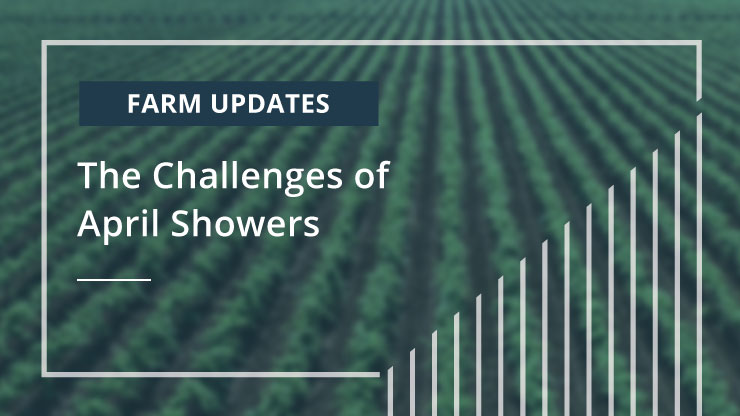
As the calendar marked April 29, 2024, we were reminded once again that spring, while a symbol of renewal and growth, also brings its fair share of challenges. At Organic Farm Partners, the skies seem to have sprung a leak, testing our resilience and our commitment to organic farming.
Organic farming is an intricate dance with nature. Unlike conventional methods, we eschew synthetic chemicals and fertilizers, making every weather pattern impactful. This season, the excess rain has posed a unique challenge, particularly in managing weed control—a critical aspect of organic agriculture.
Many might wonder why, in a profession dependent on nature, a farmer would wish away the rain. It’s a valid question, and the answer lies in the timing and balance of natural resources. For organic crops, the initial stages of growth are crucial. We plant our seeds about two inches deep, where moisture is sufficient for germination. This depth ensures that the seed has enough water to start, but not so much that it encourages the growth of weeds.
Post-germination, the ideal condition for our crops isn’t more water but rather a period of drying. The topsoil needs to lose some of its moisture to the wind and sun, creating a harsh environment for the typically shallow-rooted weeds. This drying phase is critical and typically lasts about two to three weeks. During this time, the best conditions are dry weather with plenty of sunshine, which significantly helps reduce weed pressure.
At OFP, we strategically time our planting to coincide with these drier periods whenever possible. This approach minimizes the emergence of weeds and reduces the need for manual intervention, which can be labor-intensive and less effective in prolonged wet conditions.
This season’s continuous rain, however, disrupts this delicate balance. It compels us to adapt our strategies, sometimes delaying planting in anticipation of a dry spell or innovating new ways to protect the soil and young plants from the adverse effects of excess moisture.
Through these challenges, the journey of organic farming remains a testament to our dedication to sustainable and chemical-free agriculture. Each obstacle teaches us a little more about resilience and the importance of working harmoniously with nature, even when it throws unexpected weather our way.
Curious about organic farming? Discover all the reasons to transition to organic.


